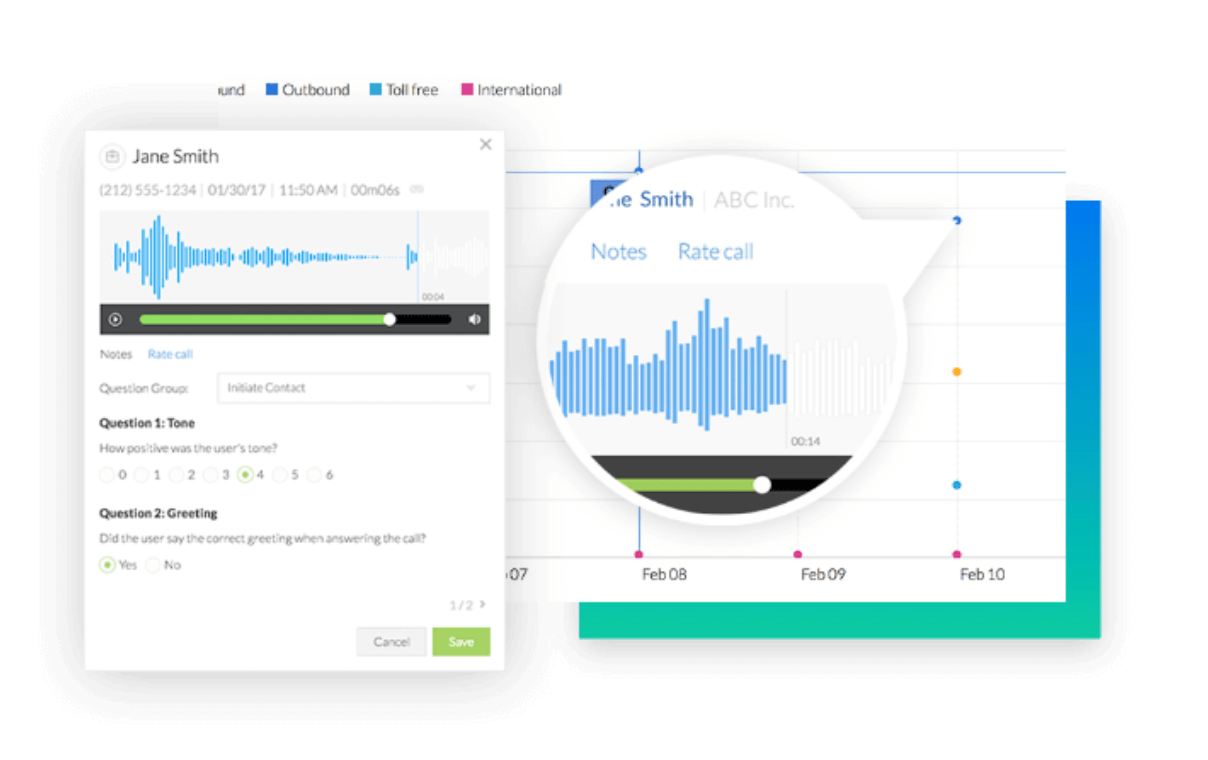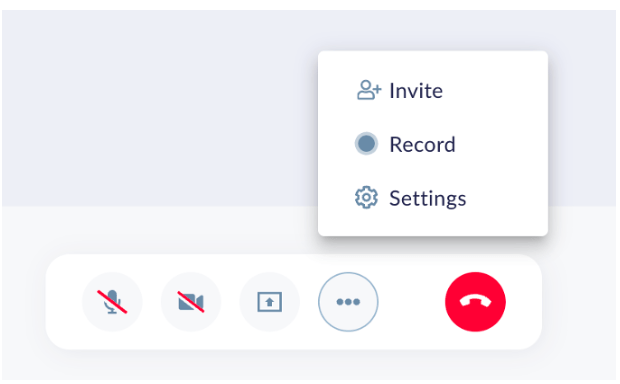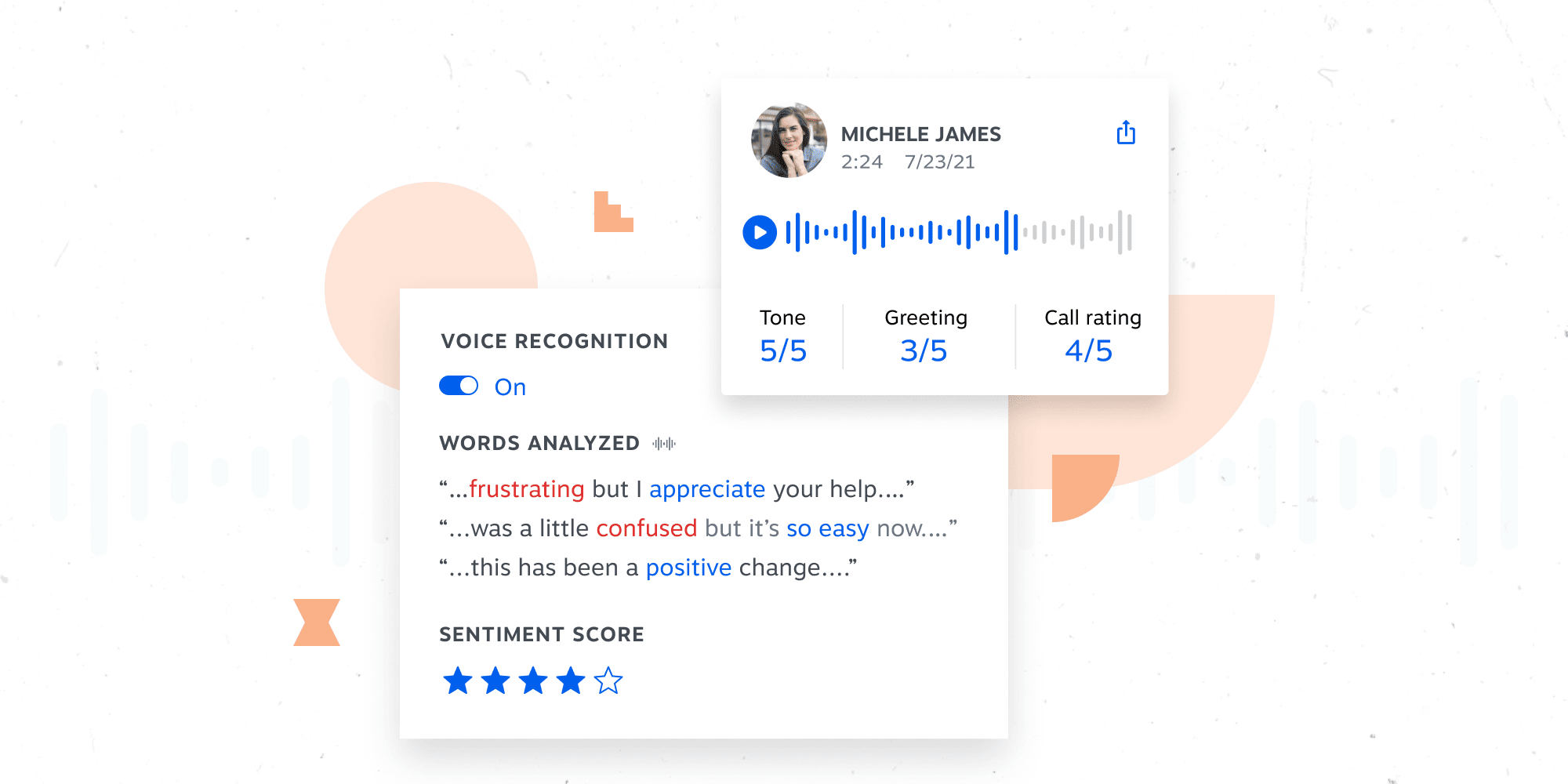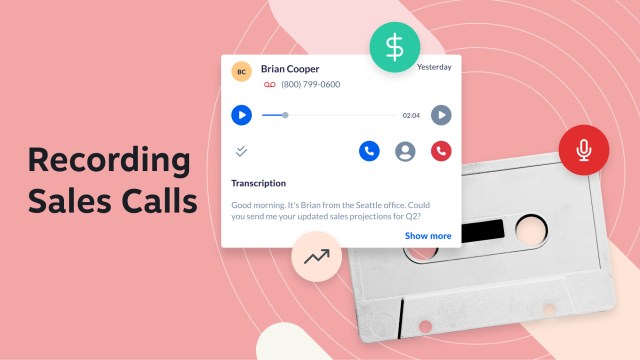Every sales call is an opportunity — a chance to learn or grow revenue.
Sales calls are full of feedback, key moments of excitement, and insights for your sales team. These insights enter a salesperson’s mind and are quickly forgotten or disappear on sticky notes.
If your sales tools don’t also help you record sales calls, you risk losing these actionable insights and missing this quarter’s quota.
As a sales leader, you need to save call recordings to update and enhance your go-to-market motions.
Read on to discover easy methods to record sales interactions, best practices, and helpful call center features to grow revenue.
5 Ways To Record Sales Calls
Cloud phone systems offer call-recording features that let you choose suitable ways for different use cases. Take a deep dive to understand more about when to use them.
1. Automatic call recording
The automatic call recording feature lets sales team members record all calls without manual intervention. These can be cold calls, follow-ups, demos, or critical business conversations.
When you record every call automatically, sales reps can:
- Replay and hear important details shared on the call.
- Capture context from conversations where the prospect’s accent is unclear.
- Avoid asking prospects to repeat the same information in subsequent calls.
These recordings later become helpful for training, onboarding new account executives, and quality assurance. They assist in legal compliance for financial services, healthcare, and telecommunication businesses.
What makes these recordings automatic? You can toggle on the option within your cloud phone system. No beeps, wires, or cassette tapes. Simply log in, and you can listen to calls anytime.

2. On-demand call recording
Salespeople can start and stop recording specific parts of the conversation.
You can respect your customers’ privacy and comply with legal requirements tied to key discussions. When it’s switched on, both parties will hear a message such as “Recording in progress.”
Phone systems allow you to customize these messages as per your choice. An easy option is to mention in your call flows that calls may be recorded for quality and training purposes.
Salespeople are better equipped to record conversations of value rather than everything. When you come back for replays, it’s less clutter. You can jump into the core right away rather than sliding through conversations to find what you need.
3. Supervisor-initiated recording
Sales leaders use supervisor-initiated recording to monitor sales calls remotely and provide feedback.
Often, these recordings don’t announce whether a call is being recorded, avoiding any customer speculation. For this reason, professionals sometimes call it selective silent recording.
Here are some situations where supervisor-initiated recordings help:
- Monitoring a team’s performance and helping them improve.
- Recognizing and appreciating salespeople who follow best practices on calls.
- Revisiting tricky discussions to address them through cross-functional support.

4. Conference call recording
Records multiple people’s voices on a conference call.
Large organizations use conference call recording to maintain records of different verticals’ priorities and updates. It’s like a standup meeting on a large scale, where department heads report.
Companies use it for various other reasons, including the following:
- Capturing details over group discussions or brainstorming sessions.
- Keeping a record of cross-departmental meetings.
- Providing access to the recording to all participants after the call so they’re on the same page.
5. Video meeting recording
Salespeople use video meeting recording in industries where visual presentations or demos are key to successful sales. Software as a Service businesses rely on it to review potential customers’ sentiments after the call.
Businesses see its benefits in several areas:
- Optimizing their sales motion for particular use cases.
- Reviewing actual pains of their potential customers and engaging them with relevant marketing collaterals.
- Collecting prospects’ feedback on what they expect from your product or service.

Related: How to Record Customer Service Calls & Why You Should
Best Practices To Record Sales Calls
Now that you know how to choose a call recording method, you need a few best practices to set it up for success. Below are a few practices you can follow while recording sales calls.
✅ Stay in compliance
Go through local, state, and federal laws related to recorded conversations. Many laws mandate that you get consent from both parties before recording begins.
These laws vary from state to state. Some require the consent of one party, while others need it from all parties. Check what applies to your business.
♻️ Automate recording notifications
Your salespeople can verbally ask prospects and customers if they can record the call. However, it isn’t a part of the core conversation. Potential buyers trust you with their time. And you should quickly be able to share how you can help without going sideways.
VoIP systems can automatically notify customers at the beginning of the call so you can drive them into the core discussion right away.
ℹ️ State the purpose
It’s important to state and honor the purpose of recording. Tell the parties why you’re recording the conversation, and adhere to the promise.
Whether it’s for training, legal documentation, or quality assurance, add it to your recording notification, or state it verbally if you can’t append it.
🔒Keep recordings safe
Protect customer data as your own. Safeguard call recording and transcriptions against security threats that affect confidentiality. You can adopt role-based access controls to make sure only authorized people or systems can access sales conversations.
Identity and access management software will let you configure these security measures, keeping recordings safe from internal or external threats.
🖊 Review recorded calls
Call recordings give conversation intelligence to your team that can push their sales performance metrics to the next level. You can see why a particular account turned into a deal or dropped off. This feedback lets you coach people and offer sales tips so they improve.
Regularly reviewing these recordings maintains a consistent flow of opportunities for your sales, marketing, and product teams and other business functions. Marketing gets a hint of what assets they can create, and product teams get actual customer feedback to ideate their future sprints.
👍 Respect customers’ preferences
If a customer doesn’t want to be recorded, don’t record. But have a process to handle objections, so your normal workflows don’t create a hurdle that prevents customers from having the best possible experience.
Sales coaching helps your team navigate these situations, amplifying their overall performance.
Related: How To Record Business Calls and Why It Matters
Alternatives To Call Recording
There are several alternatives to phone call recording. Based on your use case, you can decide what would fit the given situation.
1) Live call monitoring
Supervisors can listen to inbound or outbound calls with call monitoring. Salespeople and customers may or may not be aware of it. Sales leaders use this feature for real-time quality assurance. It motivates sales reps to follow best sales practices.
If calls go sideways, you can provide real-time guidance to maintain call quality per the company’s standards.
Here are some notable benefits of live call monitoring:
- Improves customer communications: Managers listen to calls and provide immediate feedback, encouraging their teams to match set quality standards and motivating agents to perform at their best.
- Reduces periodic training costs: As employees learn on the job, training costs are reduced.
- Reveals issues in real time: Call monitoring uncovers issues preventing salespeople from effectively engaging their prospects. A sales manager can provide timely guidance or interventions if necessary using Barge-in.
2) Barge-in
Barge-in functionality allows sales managers to join a call. They can speak to all parties involved in the discussion to assist in a complicated sale. When a call isn’t going as planned, you can correct it with an intervention.
Below are some of its notable benefits:
- Provides direct feedback: Get feedback on the quality of service and overall satisfaction with the salesperson’s assistance.
- Increases confidence with collaboration: Salespeople are reassured they’ll have help when they’re in need. Barge-in lets you collaborate with them as a leader, showing you care about the numbers but are willing to pitch in and navigate tricky situations with them.
- Speeds up the sales process: If salespeople need support from engineers about a particular customization, they can add them to the same call to offer suggestions. This reduces back and forth and speeds up the process.
3) Post-call surveys
In a post-call survey, customers receive a call from a company right after talking to their sales rep.
They pick up and hear, “Thanks for speaking with XYZ. How satisfied are you with the call on a scale of one to five? Five being highly satisfied.” They press a number on their phone and give feedback.
Some companies do these surveys on call, while others send a text message with a link to submit feedback.
A post-call survey offers many benefits for companies that implement it, including:
- Increases customers’ trust: It shows customers that their opinions are valued and considered.
- Aids in employee training: Feedback helps in improving training programs.
- Sets up quickly and easily: A post-call survey is typically easy to implement and execute.
4) Sales manager callbacks
These are follow-ups made by a sales manager to the customer after a sales interaction. You can perform them to understand the customer’s experience and resolve unaddressed issues or concerns.
Several benefits come with sales manager callbacks, including:
- Increases customer satisfaction: Buyers see you value their pain points and feedback when you set an extra layer of quality assurance and oversight.
- Demonstrates accountability: You show that your company takes responsibility for resolving issues if a salesperson can’t handle them effectively.
- Increases sales opportunities: Managers can identify and act on additional sales opportunities during these calls.
Contact Centers Simplify Call Recording for Sales Teams
Cloud-based contact centers bring the scalability and flexibility of the cloud to sales organizations, allowing you to make, record, log, and analyze phone calls at scale. Here’s a quick overview to get you up to speed on cloud contact centers.
🧭 Increases efficiency
VoIP phone systems let you record calls and save them for easy access when needed. You can avoid the hassle of running after notes or finding the conversation snippets you sent out to your manager.
It gives you the context you want at the time you choose. But, of course, only if you have permission to access the recordings.
Here’s how it increases efficiency:
- Adapts quickly: Expanding teams deal with fluctuating call volumes. VoIP systems can easily scale up and down based on their needs without any heavy lifting to build physical infrastructure.
- Improves training: It helps you train sales reps with real examples, letting them ramp up quickly and get up to speed in their roles.
- Makes decision-making data-driven: There is less chance of reiterations on your sales process when you set it up with what best works for customers.
- Connects easily with existing business systems: VoIP phone systems such as Nextiva offer integrations to connect with your existing CRMs and other systems.
🤙 Delivers better customer experiences
VoIP systems let you pair call recording with other alternatives and complements such as live call monitoring or post-call surveys. This improves customers’ experience as you can provide real-time assistance and implement customer feedback as it comes in.

These factors play a pivotal role in enhancing customer experience:
- Optimize sales tactics: You can tailor sales strategies based on customer feedback to better address their needs.
- Resolve issues faster: VoIP call recording gives you context around the issue, allowing support teams to pitch in and resolve it.
- Keep communication quality consistent: Call recordings help managers coach their entire team. It allows everyone to handle situations in the same way.
🔏 Reduces expenses and increases security
With a VoIP phone system recording calls, you don’t invest significantly to set up a physical infrastructure. It reduces your upfront expense of adopting traditional systems.
Moreover, VoIP security strictly enforces call encryption and other measures to ensure business communications are safe and secure against threats.
Here are a few other benefits that make a strong case for VoIP phone systems:
- Updates automatically: VoIP solution providers take care of updates and patch the system to protect against vulnerabilities.
- Reduces maintenance expenditure: The maintenance costs decrease since you don’t add new lines as you scale.
- Maintains reliability and data security: VoIP phone systems such as Nextiva offer a 99.999% uptime, keeping your phones operational 24/7/365. These solution providers perform rigorous penetration testing to locate vulnerabilities and adopt fraud mitigation strategies.
🌐 Offers global reach
Cloud-based VoIP services give companies a global reach. You can make calls over the internet to anyone, anywhere, without high costs. Likewise, customers abroad can call you at their local rates, making your business more accessible on a global level.
Here are a few reasons to consider VoIP if you operate internationally:
- Reduces calling expenses: With VoIP, international calls happen over the internet, and you can save the recordings easily. It doesn’t require you to pay international dialing charges.
- Opens up a global market: Calling or recording shouldn’t restrict you to the local market. Leverage VoIP features to make international calls and attract customers globally.
Recording Made Simple With Nextiva
Sales call recording tools deliver the knowledge nuggets you need to close more deals. While dialing prospects on your phone or hosting a video demo, use call recordings to refine the sales workflows with valuable insights.
Nextiva’s cloud call center records such sales calls. It makes analysis a breeze and streamlines sales performance management. Taking a route through the cloud is cheaper, more secure, and, most importantly, more adaptable to your team’s needs.
It comes with enterprise-grade reliability and security paired with ample flexibility to handle calls from NextivaONE.


